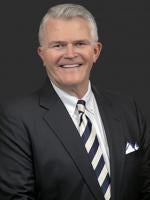The California Court of Appeal ruled in Seviour-Iloff v. LaPaille1 that employees could pursue Labor Code-based claims against executives of their employer, personally. The court found that Labor Code section 558.1 provides a private right of action for employees to pursue claims against their employer or “a person acting on behalf of an employer” who violates the Labor Code. The court further found that section 558.1 does not provide courts with discretion as to whether to impose individual liability.
Labor Code section 558.1 states that “[a]ny employer or other person acting on behalf of an employer, who violates, or causes to be violated, any provision regulating minimum wages or hours and days of work in any order of the Industrial Welfare Commission…may be held liable as the employer for such violation,” and defines “other person acting on behalf of an employer” as “an owner, director, officer, or managing agent of the employer.” Labor Code section 558.1 (emphasis added).
The plaintiffs in Seviour-Iloff v. LaPaille alleged they were employed by Bridgeville Properties, Inc. (BPI) because they entered into an agreement to live rent-free in a BPI-owned rental unit in exchange for performing various tasks around the properties. The plaintiffs filed a wage claim with the Division of Labor Standards Enforcement (DLSE), and the labor commissioner concluded that the plaintiffs were owed back wages and that BPI CEO LaPaille was personally liable under section 558.1. BPI and LaPaille appealed the labor commissioner’s ruling to the Superior Court, which found that the plaintiffs were owed wages, but that LaPaille was not personally liable. Plaintiffs appealed the Superior Court’s ruling that, among other things, LaPaille was not personally liable for the wages.
The Court of Appeal analyzed Labor Code section 558.1 and determined that section 558.1 gives the employee (and not the court) discretion to pursue wage-based liability against a “person acting on behalf of an employer, who violates” the specified Labor Code provisions. The court held that the use of “may” in section 558.1 does not give a court discretion whether to find personal liability, but instead gives the employee seeking wages the discretion as to whether to pursue wages if he or she was unable to collect the owed wages from the employer (noting “such [individual] liability may not be necessary if the employee is able to collect his or her unpaid wages from the employer.”). Importantly, the court did not rule on what conduct is sufficient for a finding that a person acting on behalf of an employer “causes” a violation, and instead limited its ruling to the question of “whether courts have discretion to deny liability if the individual is, in fact, someone who ‘violates, or causes to be violated’ minimum wage laws.”2
The Court of Appeal’s ruling could impact employers and persons who can be considered an “other person acting on behalf of an employer,” as it clarifies the relief available to employees alleging underpayment (or nonpayment) of wages and allows plaintiffs to seek recovery personally from the person acting on behalf of the employer.
FOOTNOTES
1 Seviour-Iloff v. LaPaille, 80 Cal.App.5th 427 (2022).
2 80 Cal.App.5th at 445.




 />i
/>i
